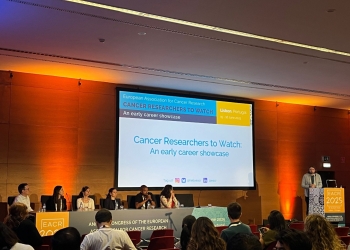Although female physiology changes significantly during the menstrual cycle, these fluctuations are rarely considered in cancer treatment strategies. This study demonstrates that hormonal cycling can influence the sensitivity of breast cancer to neoadjuvant chemotherapy.
.
In three breast cancer mouse models, reduced responses to chemotherapy were observed when treatment was initiated during the progesterone-high dioestrus phase, compared to the progesterone-low oestrus phase. This difference in sensitivity is linked to several systemic and localized changes associated with the oestrous cycle, including alterations in tumour cell proliferation, an increased presence of epithelial-to-mesenchymal transition (a known chemoresistance mechanism), and a reduced tumour vessel diameter, suggesting impaired drug delivery. In addition, fluctuations in macrophage abundance were observed, with elevated levels during the dioestrus phase. Notably, these different macrophage levels persisted even after disruption of the oestrous cycle due to the chemotherapy treatment, leading to lasting differences in the tumour microenvironments and sustained variation in treatment sensitivity across subsequent rounds of chemotherapy. Importantly, macrophage depletion during the dioestrus phase restored chemosensitivity to levels comparable to those during the oestrus phase.
.
Overall, the findings identify the oestrous cycle as a critical infradian rhythm influencing tumour chemosensitivity, highlighting treatment timing as a potential factor to optimize therapeutic outcomes.
.
 Summary of the findings
Summary of the findings









